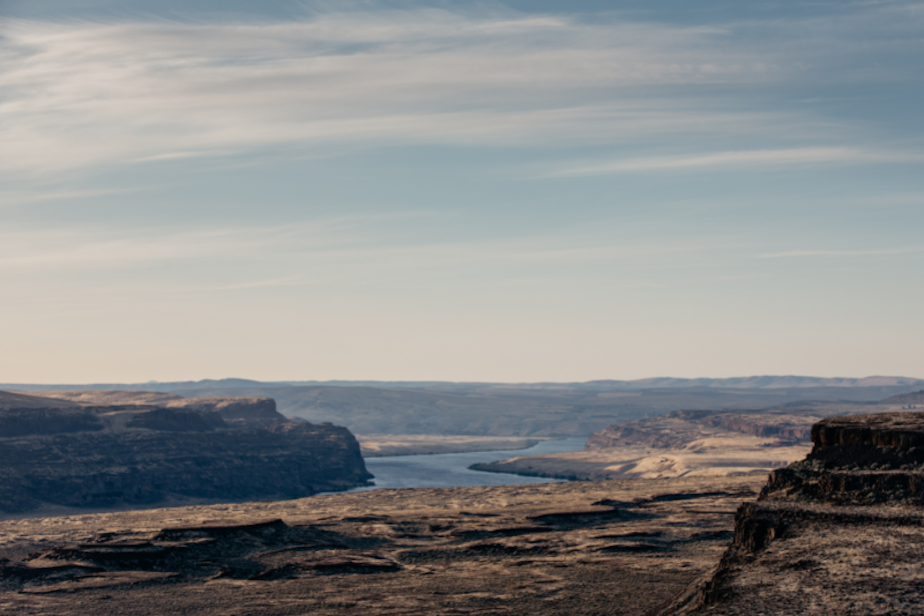For Yakama Nation, green energy projects echo colonization

Energy storage like pumped hydropower is seen by some as a critical step in reaching the state’s ambitious climate goals. Pumped hydro is essentially a big gravity battery, one that tackles the problem of inconsistency in renewable energy.
A pumped storage hydropower facility has two reservoirs at different elevations.
On a windy day, excess electricity may be generated from wind turbines. With pumped storage, that extra electricity is used to draw water to the upper reservoir.
Then, when there isn’t as much wind, that water is released to the lower reservoir. Gravity pulls it down, spins turbines, and generates clean electricity.
On Monday, a pumped storage project south of Goldendale, Washington, along the Columbia River took a step toward realization, securing a water quality certification that’s key for the project to progress.
Sponsored
The proposed site of the upper reservoir sits on Pushpum, a culturally significant area for the Yakama Nation, which holds treaty rights to access the area.
"It continues the sort of colonial pattern that we saw with dams, like the Grand Coulee and also when Celilo Falls was drowned, these sort of massive acts of colonization that changed the landscape and displaced native communities," said B. Toastie Oaster, who wrote about the Yakama Nation's effort to halt the project for High Country News.
Oaster said that the Yakama Nation isn't against green energy.
"This is about this specific place, and it's about making sure that the shift to renewable energy is done in a way that doesn't repeat colonialism and manifest destiny," they said.
Listen to the full conversation by hitting the play button above.





